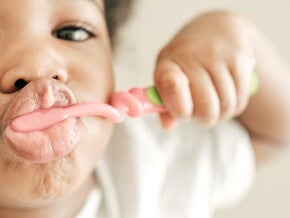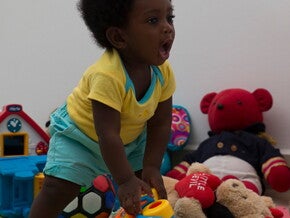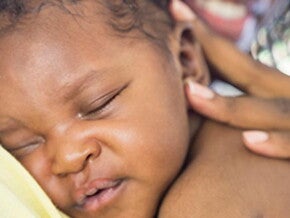
The Edinburgh Post-Natal Depression Scale is a questionnaire on post-natal depression developed by experts to more easily identify baby blues signs compared to postpartum depression. Baby blues can be caused by hormonal changes in the first week after delivery. Postpartum depression, on the other hand, often occurs in the weeks and months that follow and can occur up to one year after birth.
Answer the questions below to start a discussion about your feelings and take advice from your doctor. The questionnaire is to be used between 6 and 8 weeks after giving birth and you must choose the answer that best describes how you have felt over the last seven days — not just today. It is highly recommended to complete the questionnaire with your treating physician.
- I was able to laugh and see the fun side of things
As much as before = 0
Not as much as before = 1
Clearly not as much as before = 2
Not at all = 3 - I looked forward to the events ahead
As much as before = 0
Not as much as before = 1
Clearly not as much as before = 2
Not at all = 3 - I blamed myself unnecessarily when these things went wrong
Yes, most of the time = 3
Yes, sometimes = 2
Not really = 1
Not at all = 0 - I was anxious or worried for no good reason
No, not at all = 0
Not really = 1
Yes, sometimes = 2
Yes, very often = 3 - I panicked or was afraid for no good reason
Yes, often = 3
Yes, sometimes = 2
No, rarely = 1
No, never = 0 - I tended to feel overwhelmed by events
Yes, more often than not, I haven't been able to cope with 3
Yes, sometimes I didn't feel as capable as usual = 2
No, I did well most of the time . . . = 1
No, I've dealt with the situation as always at = 0 - I was so unhappy that I had trouble sleeping
Yes, most of the time = 3
Yes, sometimes = 2
No, rarely = 1
No, never = 0 - I felt sad or unhappy
Yes, most of the time = 3
Yes, quite often = 2
No, not really = 1.
No, not at all = 0 - I was so unhappy that I cried
Yes, most of the time = 3
Yes, quite often = 2
Sometimes = 1
No, never = 0 - The thought of hurting me came to mind
Yes, quite often = 3
Sometimes = 2
Rarely = 1
Never = 0
Edinburgh Post-Natal Depression Scale Results
Add up your scores for each answer, if your total is 10 points or more, talk to your doctor. But remember that Edinburgh's post-natal depression scale is just a guide. If you feel depressed after having a baby or are concerned about baby blues signs, it is always best to seek professional help. In a recent Nestlé-sponsored survey of 8,000 young parents in 16 different countries, more than a quarter of mothers reported suffering from baby blues - so you're not alone. Talking to friends and family can really help, and your doctor can put you in touch with postpartum depression counselling and postpartum support groups, if you need it. You can also search the Internet for hotlines run by trusted charities and read our checklist on how to deal with baby blues for help. Parenting can be a difficult task, so find the support you need to be at your best with your little one, and remember, "It's going on, it's all happening." You're going to make it.
*Moms' mom-shaming-culpability

















